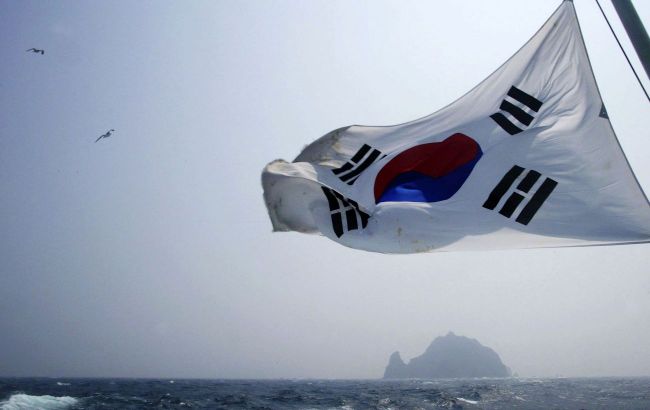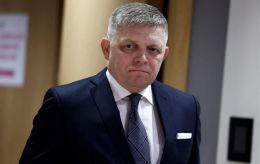Trump's victory forces Seoul to reconsider plans to supply arms to Ukraine
 Illustrative photo (Getty Images)
Illustrative photo (Getty Images)
Donald Trump's victory in the US election prompted South Korea to reconsider the possibility of directly supplying arms to Ukraine, a decision that could influence the course of the war, citing Bloomberg.
President Yoon Suk Yeol's administration will now have to consider the stance of the US president-elect, as they deliberate on whether to change their longstanding policy of refraining from sending lethal aid to Kyiv, an official who requested anonymity due to the private nature of the discussions said.
Another official noted that Seoul is also assessing how Trump’s approach to the war will affect support for Ukraine among various countries.
The comments suggest that South Korea is unlikely to supply ammunition to Ukraine unless Pyongyang takes further action or more clarity emerges on Trump’s intended approach toward Ukraine.
“It would be pretty awkward for South Korea, not even a member of NATO, to step in at this point if Trump moves in to the White House and wants to pull out from the conflict,” said Kim Jung, a political science professor at the University of North Korean Studies in Seoul.
The president's office said that the government will consider possible scenarios for military cooperation between Russia and North Korea following the deployment of North Korean troops and will take countermeasures. “We will closely coordinate with our ally and partners in that process,” the statement read in response to Bloomberg's questions about South Korea’s latest plans to send weapons to Ukraine.
Security threat
Seoul has long resisted calls from Western allies to tap into its vast military stockpiles and directly send weapons or ammunition to Ukraine, preferring to support Kyiv with non-lethal assistance instead. However, North Korea’s deployment of up to 12,000 troops to Russia has altered this stance, with Yoon Suk Yeol asserting that Pyongyang’s direct involvement in the conflict poses a security threat to his country.
“We do not rule out the possibility of providing weaponry,” he said at a press conference last week, before the US election results, which came just hours earlier. “If we provide weapons support, defensive weapons will be the first under consideration.”
Exporting lethal aid to Kyiv would signal strong support for Ukraine and could benefit South Korean businesses in post-war Ukrainian reconstruction efforts.
The Biden administration would likely welcome this decision, but it’s unclear how Trump and his team would respond. The president-elect vowed during his campaign to end the war “within 24 hours,” by pushing Russia and Ukraine into negotiations, raising questions about the future of US assistance to Kyiv.
EU leaders are already trying to assess if they could continue Ukraine’s efforts if Trump chooses to halt US support.
Ukrainian President Volodymyr Zelenskyy is preparing to send an envoy to Seoul to persuade South Korea to reconsider its stance. South Korea has extensive reserves of 155-millimeter artillery shells, the NATO standard ammunition used by Ukraine.
The US and South Korea have repeatedly accused Kim of sending ammunition and ballistic missiles to aid Putin in the war in Ukraine. South Korea estimates that around 8 million shells have been sent.
According to Kyrylo Budanov, head of Ukrainian intelligence, the supply of North Korean ammunition to Moscow presents a greater problem for Ukraine than other support Russia receives, including from Iran.
Seoul’s cautious stance on supplying weapons to Kyiv partly stems from concerns over turning Russia into an adversary. Russia’s Foreign Ministry has threatened “security consequences” for South Korea should it provide weapons to Ukraine.
The strengthening ties between Pyongyang and Moscow have led Kim Jong Un to intensify hostility toward South Korea while raising concerns about North Korea’s ability to bolster its army and sustain its regime with Russian support.
In June, Kim and Putin raised the stakes by reviving a Cold War-era pact, agreeing to support each other in the event of an attack.
Officials in Seoul have indicated that they may consider direct arms supplies if North Korea acquires technology that could expand its capabilities to produce weapons of mass destruction. Putin has stated that he cannot rule out transferring high-precision weaponry to Kim in response to Western military aid for Ukraine.
South Korea has provided Ukraine with non-lethal assistance, including demining equipment, but has so far refused Kyiv’s requests for arms supplies.

